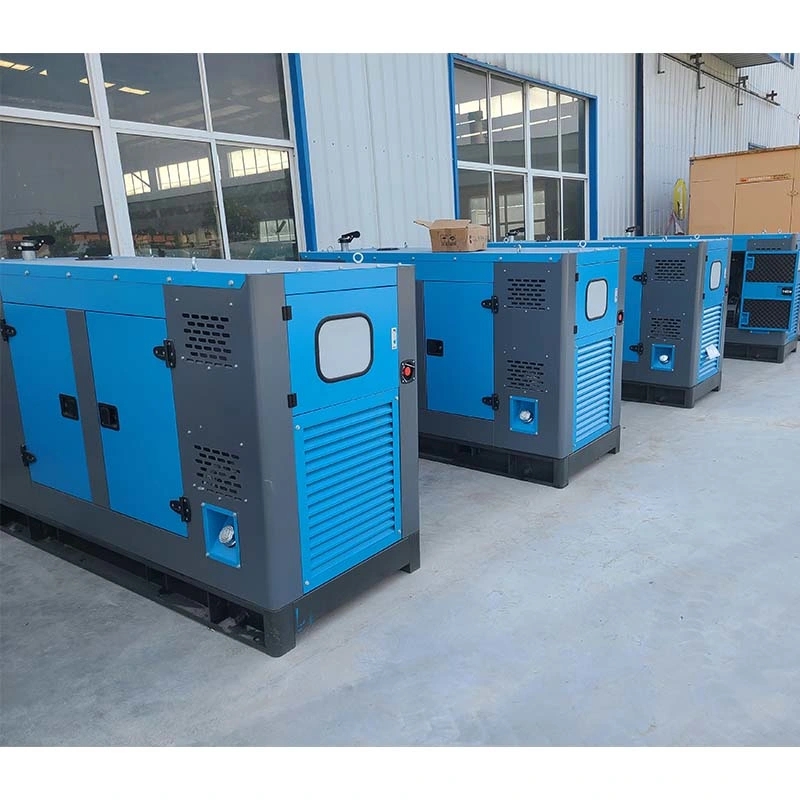Diesel Generators and Noise Regulations Understanding the Impact and Compliance Measures

Introduction
Diesel generators play a critical role in providing backup power in various settings, including residential, commercial, and industrial facilities. While they are essential for ensuring uninterrupted power supply during outages, diesel generators can also be a significant source of noise pollution. Noise regulations are in place to protect individuals and communities from excessive noise levels, and diesel generators must comply with these regulations to mitigate their impact on the environment and public health.
In this article, we will explore the relationship between diesel generators and noise regulations. We will discuss the sources of noise generated by diesel generators, the potential impacts of this noise on individuals and the environment, and the measures that can be taken to ensure compliance with noise regulations.
Sources of Noise in Diesel Generators
Diesel generators are complex machines that produce noise through various mechanisms. Understanding the sources of noise in diesel generators is essential for implementing effective noise mitigation measures. Some of the primary sources of noise in diesel generators include:
1. Engine Noise: The combustion process in the diesel engine generates significant noise levels. The sound produced by the engine can vary depending on factors such as the engine size, speed, and load.
2. Exhaust System Noise: The exhaust system of a diesel generator plays a crucial role in reducing emissions and noise levels. However, the exhaust system itself can be a source of noise due to the flow of exhaust gases and the operation of the muffler.
3. Cooling System Noise: Diesel generators require a cooling system to maintain optimal operating temperatures. Fans, pumps, and other components of the cooling system can contribute to the overall noise output of the generator.
4. Mechanical Noise: Various mechanical components, such as bearings, belts, and gears, can produce noise during the operation of a diesel generator. Proper maintenance and lubrication of these components are essential for reducing mechanical noise.

5. Vibration Noise: Vibration is another common source of noise in diesel generators. The movement of components and structures within the generator can generate vibrations that are transmitted as noise.
Impacts of Diesel Generator Noise
Excessive noise from diesel generators can have several negative impacts on individuals, communities, and the environment. Some of the key impacts of diesel generator noise include:
1. Health Effects: Prolonged exposure to high levels of noise can lead to various health issues, including hearing loss, stress, sleep disturbances, and cardiovascular problems. Individuals living or working near diesel generators are particularly vulnerable to these health effects.
2. Disturbance of Peace: Noise from diesel generators can disrupt the peace and tranquility of residential areas, commercial spaces, and public facilities. Excessive noise can interfere with communication, concentration, and relaxation, leading to a decrease in overall quality of life.
3. Environmental Impact: Noise pollution from diesel generators can have adverse effects on wildlife, vegetation, and ecosystems. Loud noise can disturb wildlife habitats, interfere with animal communication and navigation, and disrupt the natural balance of ecosystems.
4. Regulatory Compliance: Failure to comply with noise regulations can result in legal consequences, fines, and penalties for individuals and organizations using diesel generators. It is essential to understand and adhere to the applicable noise regulations to avoid potential liabilities.
Measures for Noise Mitigation and Compliance
To ensure compliance with noise regulations and minimize the impact of diesel generator noise, various measures can be implemented. 400kw diesel generator focus on reducing noise at the source, controlling noise propagation, and implementing effective monitoring and enforcement mechanisms. Some of the key measures for noise mitigation and compliance include:
1. Proper Siting and Installation: The location and orientation of diesel generators can significantly affect noise levels. Generators should be sited away from sensitive receptors such as residential areas, schools, hospitals, and other noise-sensitive facilities. Proper installation of sound barriers and enclosures can also help reduce noise propagation.
2. Soundproofing and Acoustic Treatment: Soundproofing measures, such as acoustic insulation, sound-absorbing materials, and vibration isolation mounts, can be used to reduce noise emissions from diesel generators. Enclosures and barriers can be installed around the generator to contain and absorb noise.
3. Regular Maintenance and Inspection: Proper maintenance of diesel generators is essential for ensuring optimal performance and minimizing noise levels. Regular inspection of engine components, exhaust systems, cooling systems, and other parts can help identify and address potential sources of noise.
4. Use of Quieter Technologies: Advancements in diesel generator technology have led to the development of quieter models with reduced noise emissions. Investing in modern, low-noise generators can help improve compliance with noise regulations and mitigate the impact of generator noise.
5. Monitoring and Compliance Reporting: Implementing a monitoring program to track noise levels from diesel generators can help ensure compliance with noise regulations. Regular noise assessments, measurements, and reporting can demonstrate efforts to mitigate noise pollution and address any potential violations.
Conclusion
Diesel generators are essential for providing backup power in various settings, but their noise emissions can pose challenges in terms of regulatory compliance and environmental impact. Understanding the sources of noise in diesel generators, the potential impacts of this noise, and the measures for noise mitigation and compliance is crucial for minimizing the negative effects of generator noise.
By implementing proper siting and installation practices, soundproofing measures, regular maintenance, and monitoring programs, individuals and organizations can reduce noise levels from diesel generators and ensure compliance with noise regulations. Ultimately, a proactive approach to noise mitigation can help protect public health, preserve the environment, and maintain harmonious relationships within communities.
